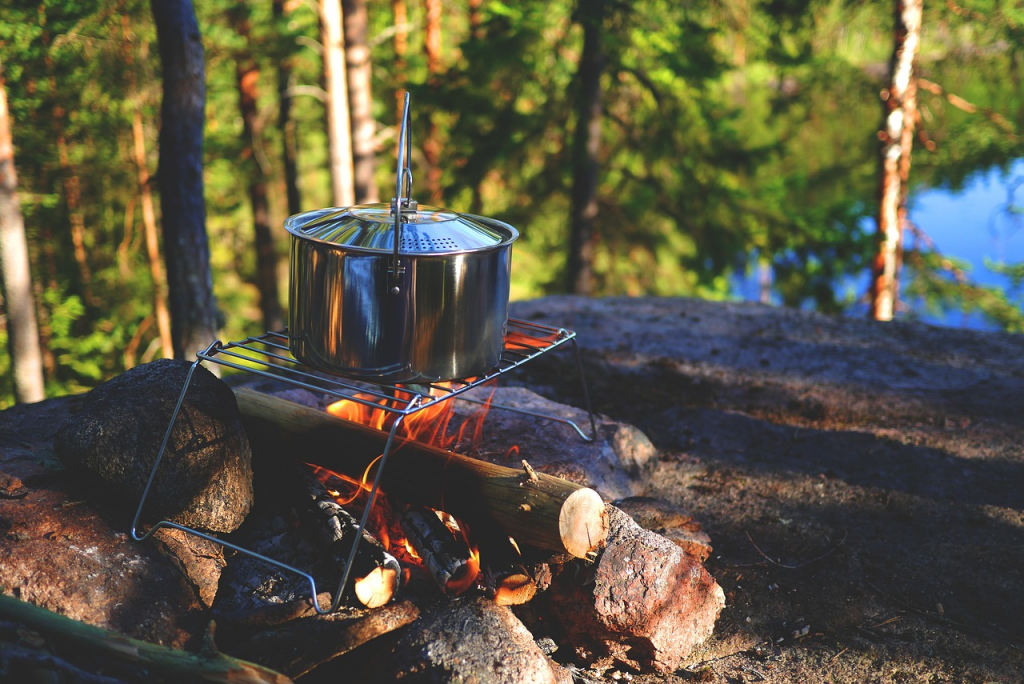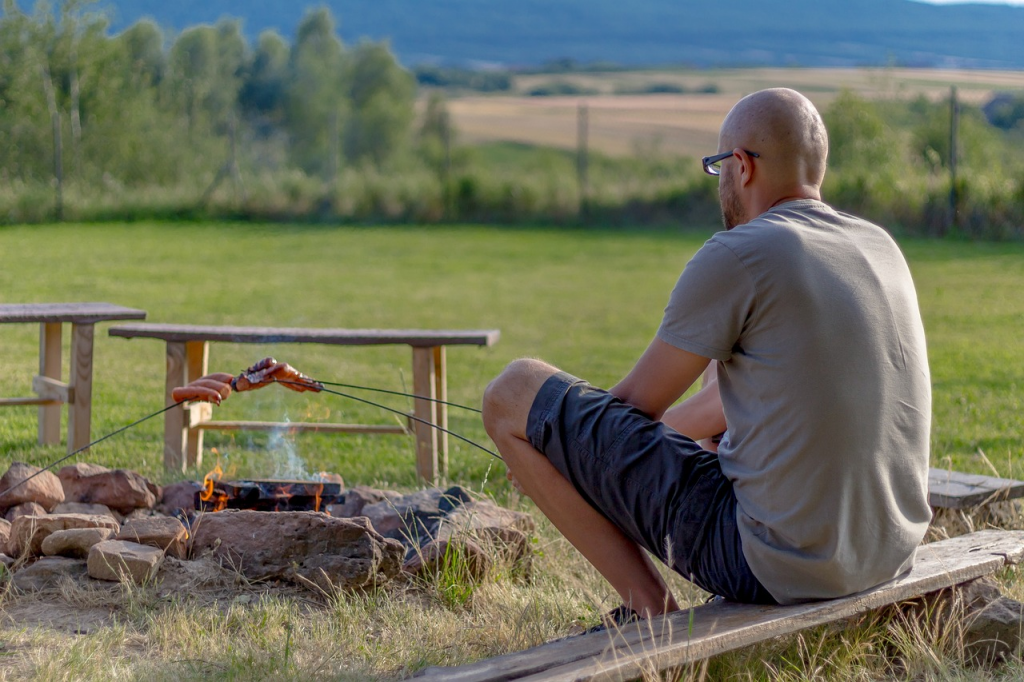Guide to Camp Cooking: 5 Common Mistakes to Avoid
Food forms a major part of the memories of and around camping. It’s the cooking part that’s fun and a little challenging. Good cooking will enhance the whole camping experience. Sometimes, we imagine and ‘cook up’ a scenario in our minds, and the experience turns out to be way different. Camp cooking is quite different from cooking at home.

Source: Pixabay
You wouldn’t want to spoil the food and the mood with cooking that’s gone awry. Whether you are a seasoned camping enthusiast or a beginner, learning some camp cooking tips and tricks should help you. First and foremost, make sure to tackle these five common camp cooking mistakes:
- Planning mistakes: No planning, insufficient planning, and excessive planning are all mistakes when it comes to camping cooking. However, over-planning might just be a lesser evil compared to the others. No planning is an ingredient for disaster and disappointment. Insufficient planning might lead to some inconveniences. Overplanning can be adjusted a little when you are implementing the cooking process. Plan your meals to avoid hungry group members and unnecessary delays. With the right quantities of ingredients and tools on hand, you’ll dodge emergency store trips. Stay prepared and enjoy seamless mealtime!
- Not giving the campfire its dues: This is with the assumption that you are cooking in the conventional camping style over a campfire. A campfire needs care and attention, as well as the right technique. Additionally, it requires patience and good materials. If you are starting a campfire in an existing ring, do take a few minutes to scrape away the old (often soggy) ashes. It’s best if you pack a jet flame torch lighter or a propane trigger torch for your camping trip. With either of these, you’ll find it easier to get a sturdy fire going. Gather sufficient tinder to light the kindling. Don’t smother your fire with the ashes of papers that burn out quickly. Split the wood, and it will burn more quickly and completely. Start early and nurture your campfire with patience until it turns into a steady and safe heat source. We recommend bringing a Pocket Bellow to help you start the fire with ease and be sure to check out our blog: Pro Tips on Building the Perfect Campfire.

Source: Pixabay
- Cooking equipment mistakes: If you bring along other cooking equipment like stoves, you’ve avoided a camping cooking mistake, namely, relying solely on a campfire. But, consider this scenario: you brought along the required cooking equipment but did not check if it was working properly beforehand, and it failed you right on time. It is definitely a scenario you’d like to avoid. Clean and test your cooking equipment before heading out on your camping trip. If something is missing, broken, or damaged, do remember to purchase it, replace it, and get it repaired before the trip. Make sure you carry the required pots, pans, cooking spoons, and other tools required for preparing the meal items you have planned. For example, even though you prepare fresh lobster, you’re still going to need tongs to pick it up and a lobster cracker to enjoy it. Plan your meals, make a list of the equipment and tools you will require, and pack them with due diligence.
- Forgetting about food safety: It is equally important (if not more) to take care of food safety while camping in the great outdoors. When the conversation comes to food safety, most people assume it is about the handling of food. Although there are safety concerns around the handling of food, safely storing food is an equally large concern. You don’t want the camping trip to be ruined because someone fell ill due to food that was improperly stored or handled. Always remember to separate raw food from other food items. If you are carrying perishable poultry or meat products, carry them along with a cold source for safety. Even while you are out in the wild, washing your hands prior to handling and eating food is a must. Keep hand sanitizer and disposable wipes handy. Take all necessary precautions related to food safety, even while camping.
- Experimenting with complicated recipes: The issue with complicated recipes is that they require numerous ingredients and elaborate steps for preparation. They are also often quite time-consuming. When you go camping, we recommend making the most of limited ingredients and supplies. Leave the complicated recipes for experimentation at home and stick to basic, simple, and easy-to-prepare recipes for camping cooking. You can find some delicious s’mores recipes right here.
Final Words
One of the biggest mistakes is approaching camping cooking with the same kind of expectations that one has for home-cooked food. It’s going to be different; it is supposed to be different. And this difference is meant to be enjoyed and celebrated. When cooking while camping, enjoy the process to enjoy the results.
Author bio: Kevin Fagan
 Kevin Fagan is a food & travel writer, based in New England. He likes to (try to) cook gourmet food at home, and travel to far-flung destinations.
Kevin Fagan is a food & travel writer, based in New England. He likes to (try to) cook gourmet food at home, and travel to far-flung destinations.
Find your favorite summer gear at Alabama Outdoors. We want everyone to enjoy the outdoors, and we work to build loyalty one connection at a time. Visit one of our stores or take advantage of our shipping or in-store pickup! #BeOutdoors